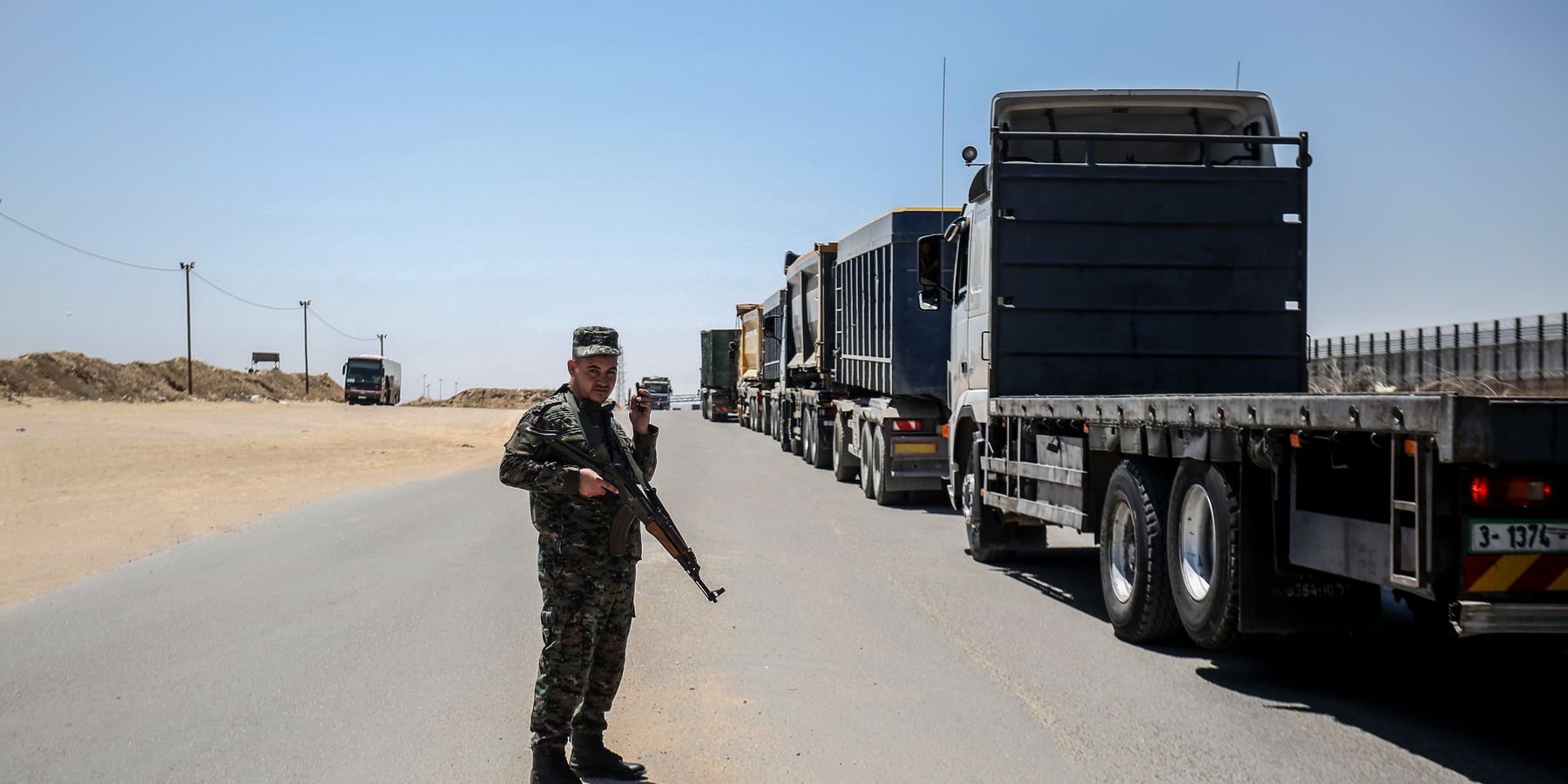The ceasefire in Gaza is not yet a week old, and Washington is already sending private U.S. security contractors to help operate checkpoints, a decision that one former military officer told RS is a “bad, bad idea.”
This will be the first time since 2003 that American security contractors have been in the strip. At that time, three private American contractors were killed by a roadside bomb while providing security for a diplomatic mission in Gaza.
Axios reports that two U.S. security companies will operate as part of a multi-national group, as laid out in the Gaza cease-fire deal, and Israel and Hamas have already approved them, as required by the deal.
The contractors will be inspecting vehicles that are moving into northern Gaza via the Netzarium corridor to ensure that no heavy weapons enter that part of the territory.
Israel had previously considered using security companies to distribute aid to Palestinians in Gaza last year as the Knesset was discussing banning the United Nations relief organization, UNRWA.
The Qatari government will likely fund the security forces. An Egyptian security company has also been selected for the mission. Safe Reach Solutions is one of the American companies providing security assistance and is credited with drawing up the plan. The other company, UG Solutions, is known for employing former soldiers from American and foreign special forces, according to Axios.
As part of the deal, these contractors will likely remain in Gaza during the first phase of the cease-fire, which is expected to last six weeks. Critics are already raising alarms about the potential safety issues.
“This is a bad, bad idea. This is a cauldron of angry people who are quite hostile towards Americans because most of the bombs that have fallen on Gazans have been U.S. provided,” said Lt Col. (retired) Daniel L. Davis.
“Gaza has been turned into a moonscape by Israeli Defense Forces actions, and thus any operation inside the Strip going forward should be IDF, not American,” Davis added. “The chances that angry Palestinians may target and kill Americans are uncomfortably high, in my view. Nothing good will come of this.”
- Where are the US ships on the Gaza aid mission now? ›
- Have Americans held by Hamas become an afterthought? ›
- American security contractors walking thin line in Gaza | Responsible Statecraft ›
- Israel to use US military contractors in new Gaza aid scheme | Responsible Statecraft ›
















